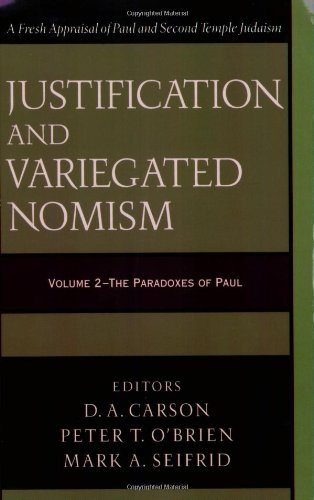A “Bonus” Chapter Summary from Books At a Glance
by Nathan Sundt
About the Author
Timo Laato is Associate Professor of New Testament at The Lutheran Theological Seminary in Gothenburg, Sweden.
Overview
Timo Laato begins chapter 10 (translated from the original German by Sigurd Grindheim) by situating the work of Sanders against the backdrop of Bultmann. Bultmann’s Paul began with existentialist philosophy: “An exact analysis of human existence under flesh, sin, death, and law leads through an act of faith to a new self-understanding before God and in relation to this world.” This widely-accepted approach was displaced by E. P. Sanders, who argued that “Paul’s thought moved ‘backwards.’” Paul began with a solution (Christ) and then found the requisite or matching problem (human sin). For Sanders, “the apostle to the Gentiles had not rejected the religion of his ancestors on the basis of an anthropological analysis. Bultmann was wrong.”
Sanders’s claim regarding Paul’s “backward” movement required three footings: “Anthropological pessimism does not serve as the basis for Paul’s conflict with Judaism.” (2) “Bultmann’s interpretation along those lines is therefore falsified.” (3) Paul’s anthropological presuppositions “are better explained as a deduction from his Christological soteriology.” Laato dismisses the second footing, noting that Sanders mostly begs the question and does not interact with Bultmann in his polemics. The first footing is not the purpose of his essay, though Laato points to his other writings, as well as volume 1 of Justification and Variegated Nomism to prove the point that the external Jewish texts demonstrate “clearly that the concept of human merit and self boasting is not totally absent.” He presses the point further: “Even though there are differences of views among many of the authors [of JVN volume 1] regarding the extent of merit theology in Judaism, regarding the basic anthropological outlook there is at least a common denominator.” In other words, both in the original Jewish sources and in contemporary commentating, the various interpretations of Jewish nomism all rely on a more unitary (and optimistic) concept of its doctrine of man. . . .
[To continue reading this summary, please see below....]The remainder of this article is premium content. Become a member to continue reading.
Already have an account? Sign In
Buy the books

JUSTIFICATION AND VARIEGATED NOMISM (VOLUME 2): PARADOXES OF PAUL, edited by D. A. Carson, Peter T. O'Brien, and Mark A. Seifrid